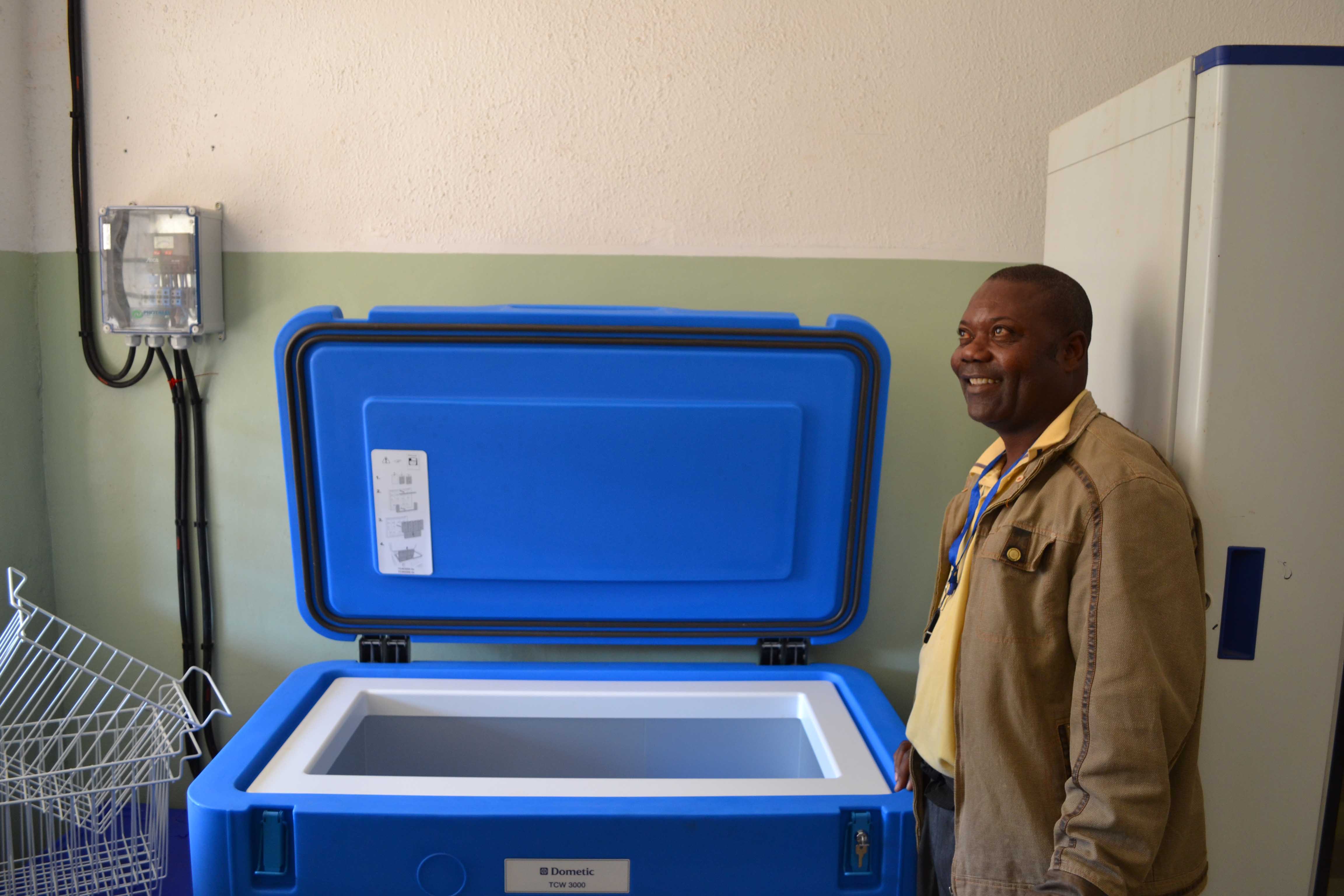News & Updates
Addressing child mortality and transmission of polio virus in Nigeria
21 September 2016

Low routine immunization (RI) coverage rates remain a major problem in Nigeria. Over 40% of under-5years old deaths in the country are attributable to vaccine preventable diseases (VPDs). Furthermore, the country remains one of only three polio endemic countries in the world, alongside Afghanistan and Pakistan. Unless drastic measures are taken to improve coverage of routine immunization urgently, Nigeria cannot adequately reduce child mortality or accelerate progress towards the achievement of MDG 4 goal (Nigeria has been declared Polio free from September 25, 2015).
In recent years, the National Primary Health Care Development Agency (NPHCDA), state governments and development partners, including GAVI Alliance, have taken steps to improve RI coverage in Nigeria. In 2010, DTP3 coverage reached a high of 69%. However, subsequent coverage surveys have shown that these gains have not been sustained. Results from the 2013 Nigerian Demographic and Health Survey revealed a national DTP3 coverage of 38%.
Several assessments and diagnostics of the RI system have been carried out to understand the drivers of poor performance in Nigeria. One key problem that has been consistently identified in the RI program is failure of the cold chain and vaccine logistics systems. Vaccine cold chain storage capacity is inadequate at the National, State and LGA levels and almost non-existent at in health facilities. Much of the existing cold chain infrastructure is non functional due to poor maintenance.
In April 2013, NPHCDA launched a transformation of the vaccines supply chain in Nigeria, focused rapid modifications of the National operations and re-designs of vaccine flows from State cold stores to service delivery points. Towards filling some of the cold chain infrastructure gaps, NPHCDA received approval for re-programming of GAVI Health Systems Strengthening and other funds for the procurement of cold chain equipment to be deployed across the 36 states and Federal Capital Territory.
NPHCDA, State government and development partner GAVI Alliance undertook to successfully procure and install solar refrigerators between third quarter 2013 and the first quarter 2015, using re-programmed GAVI Health System Strengthening funds.
CCE (Cold Chain Equipment) Landscape before procurement of 1656 Solar Direct Drive (SDD)

In 2012 and 2013, the NPHCDA completed a comprehensive cold chain assessment which identified gaps in cold chain across the country. Considering the National policy, that each administrative ward should have at least one health facility with a functional solar refrigerator, only 1,500 (~16%) of wards in Nigeria have at least one facility with a functional solar refrigerator, while 1,277 (~13%) of the wards had non-functional solar refrigerators only. Solar refrigerators were required at 6,795 (~71%) wards to achieve the target of the policy.
The assessment report also identified the need to shift to solar-powered systems for cold chain at service delivery points. This would eliminate the reliance on electric power for vaccine cold storage at the facility level, and ensure potency of vaccine through more reliable solar energy.
B Medical Supplied 1,565 Units of TCW 2000 SDD refrigerators and icepacks freezers in collaboration with Prezzo Shed Investment Limited that undertook the local components of the contract for transportation, distribution/ delivery, installation and training of health workers on handling and preventive maintenance of TCW 2000 SDD across 36 States & Federal Capital Territory Abuja, Nigeria.
Prezzo Shed Investment Limited has more than 150 technicians, trained on Installation & Maintenance of TCW 2000 SDD with an operational technical hotline that is accessible 24/7 to provide immediate response and solution to the end users.
Prezzo Shed Investment Limited surmounted various challenges and have successfully installed and commissioned over 2,000 Units of SDD’s across 36 States & FCT Abuja, Nigeria. Most of the installation where carried out in the hinterlands, and hard-to-reach locations, e.g The mangrove swamp and creeks in the South-South zone, We have installed over 188 units of TCW 2000 SDD & 143 units TCW 40 SDD in high security risk areas of the North-Eastern zone of Nigeria. Where accessing vaccines was almost impossible as a result the prevalence rate for vaccine preventable diseases (VPDs) is very high.
Prezzo Shed Investment Limited has successfully trained 72 Cold chain Technicians on preventive maintenance, 37 Cold Chain officers and Over 3,312 Health Workers on handling & basic troubleshooting of TCW 2000 SDD refrigerators and icepacks freezers across 36 States & FCT Abuja, Nigeria. This is to forestall preventable breakdown of the CCE’s.
Vaccines are more accessible and potent presently in Nigeria than at any other time, NPHCDA, GAVI Alliance, B Medical, Prezzo Shed Investment Limited and other partner’s efforts in the past years culminated to the recent declaration by WHO on September 25, 2015 “that Nigeria has been officially removed from Polio endemic list”.
This is the first time that Nigeria has interrupted transmission of wild polio virus.
